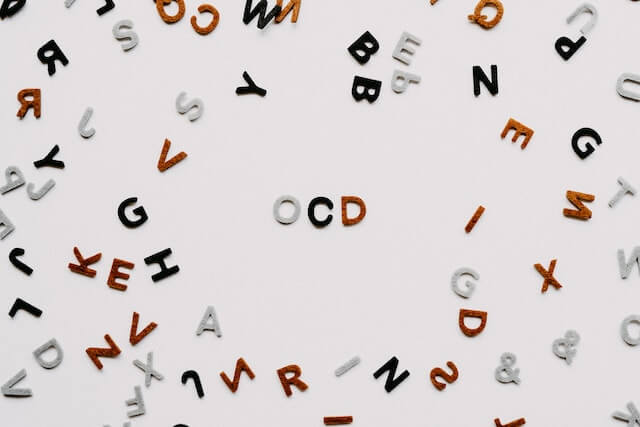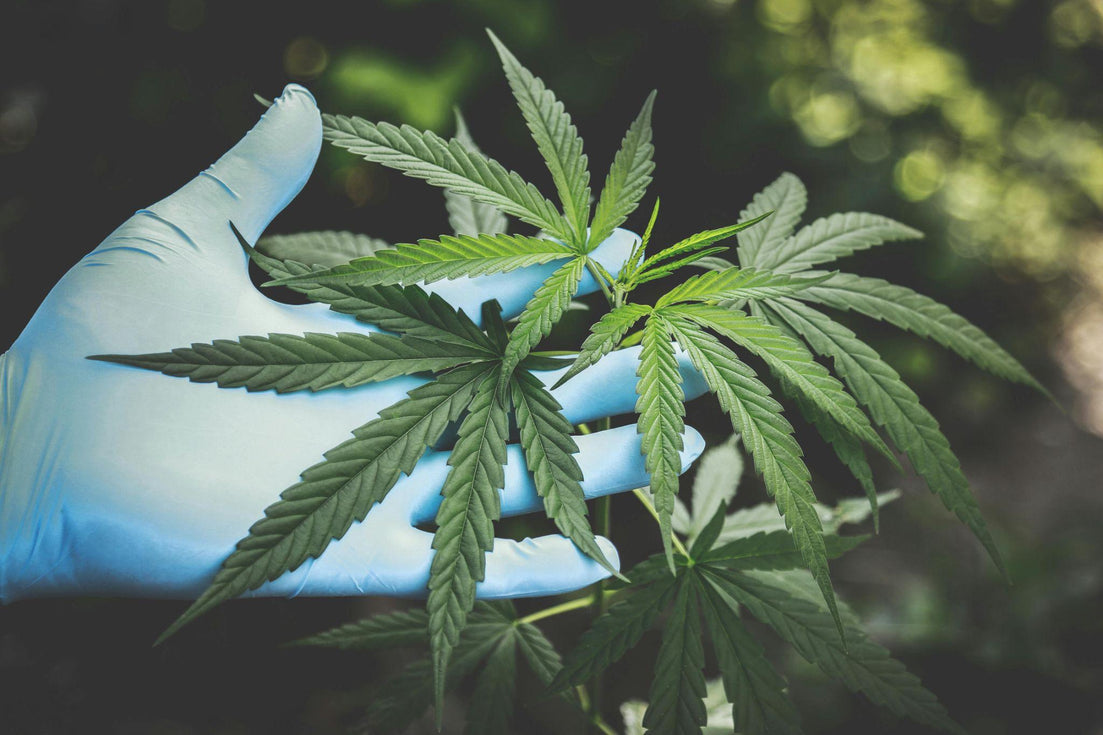Your cart is currently empty.

Have you ever felt like a hamster stuck in an endless loop, running on its wheel with no escape? That's how living with Obsessive-Compulsive Disorder (OCD) can feel. You're not alone though - nearly 2 to 3 percent of the world population is right there on that relentless treadmill with you.
Can we break free from this cycle, or are we content to remain in its grip?
CBD for OCD: Research, Benefits, Dosage, Recommended Products. Now that's something different; something new. Could this be the escape hatch from our spinning wheels? CBD has been causing quite a stir lately - anecdotes about its potential benefits seem almost too good to be true.
We're stepping away from the usual stuff here. No more talk about Cognitive Behavioral Therapy or serotonin reuptake inhibitors. We're exploring uncharted territory now.
Understanding OCD and Its Standard Treatments
Affecting an estimated 2 to 3 percent of the global population, OCD is a mental health disorder marked by intrusive thoughts (obsessions) and compulsive behaviors. Characterized by unwanted thoughts (obsessions) and repetitive behaviors (compulsions), it can be both disruptive and distressing.
The standard treatment for this condition typically involves cognitive behavioral therapy and serotonin reuptake inhibitors. Let's take a closer look at these treatments.
The Role of Cognitive Behavioral Therapy in Treating OCD
CBT, a shortened form of cognitive behavioral therapy, has been demonstrated to be an efficient initial treatment for OCD. It focuses on altering thought patterns leading to obsessive-compulsive behaviors. A specialized form of CBT known as Exposure Response Prevention (ERP) is particularly beneficial.
In ERP sessions, individuals are gradually exposed to their obsessions while being guided not to perform the compulsive rituals associated with them. Over time, they learn that even without performing these rituals, their anxiety will decrease naturally.
Despite its effectiveness though - about one-third of people with OCD do not experience significant reduction in symptoms after undergoing CBT. This statistic emphasizes the need for alternative therapies or adjuncts such as medication alongside psychological interventions.
Serotonin Reuptake Inhibitors: The FDA Approved Medication for Treating OCD
Moving onto medications – Serotonin Reuptake Inhibitors (SRIs) have received approval from FDA specifically for treating OCD. They work by increasing the levels of serotonin, a neurotransmitter in your brain associated with mood regulation.
However, they're not instant fixes – these medications need around six weeks to have a clinically significant effect on reducing obsessive-compulsive symptoms. Also, like all medicines, SRIs can cause side effects which may include nausea and sleep disturbances among others.
The reality is that while standard treatments such as CBT and SRIs help many individuals manage their OCD symptoms effectively; for some people - these approaches might not be enough or suitable due to various reasons including severe side effects or insufficient response.
Exploring Alternative Treatments: The Case of CBD
This is where our journey brings us.
Obsessive-compulsive disorder (OCD) affects a small but significant portion of the population. Traditional treatments include cognitive behavioral therapy and serotonin reuptake inhibitors, yet they don't work for everyone. Hence, there's a need to explore alternative options like CBD.
The Potential of CBD in Treating OCD
People with OCD face a difficult reality. It's a condition that goes beyond the common perception of needing things to be orderly or clean. People living with OCD experience intense, intrusive thoughts and engage in repetitive behaviors as an attempt to relieve these distressing feelings.
Anecdotal evidence suggests that cannabidiol (CBD), a compound derived from the cannabis plant, may be able to provide some relief for those suffering from OCD. Let's explore how it works and what science has discovered so far about using CBD products to ease OCD symptoms.
Medical Cannabis and Its Impact on OCD Symptoms
A 2023 study brought encouraging news for those seeking alternatives to standard treatments like serotonin reuptake inhibitors (SRIs). The researchers found significant reductions in compulsions, intrusive thoughts, and anxiety among patients with OCD who were using medical cannabis.
Patient-reported data revealed compelling results: a 60 percent reduction in compulsions, a 49 percent decrease in intrusive thoughts, and even a drop by more than half – 52 percent – when it came down to dealing with anxiety issues.1.
This is promising evidence indicating how CBD could potentially relieve ocd symptoms. But why did higher doses of CBD lead to larger reductions? It all comes down to understanding our body’s endocannabinoid system (ECS).
The ECS helps regulate many bodily functions such as sleep patterns, mood disorders including stress response - which plays directly into conditions like generalized anxiety disorder and OCD. The speculation is that CBD communicates with the ECS to advance a more adjusted state, potentially diminishing tension side effects and facilitating obsessive-compulsive practices.
The Effectiveness of Smoking Cannabis on OCD Symptoms
In 2023, a study honed in on the immediate effects of smoking cannabis for those grappling with OCD. The findings revealed that whether the cannabis was primarily CBD or THC based, there wasn't much of an instant impact.2
Living with OCD is tough, but CBD might offer some relief. A 2023 study found that medical cannabis significantly reduced compulsions, intrusive thoughts and anxiety in patients with OCD - as much as a 60% reduction in symptoms. The key? It's believed to interact with our body's endocannabinoid system, helping regulate mood and stress response.
The Role of CBD in Anxiety and Mood Disorders
Cannabidiol, more commonly known as CBD, is a non-psychoactive compound found in the cannabis plant. Unlike its cousin THC (Delta 9), it doesn't cause a "high" feeling. This has made it an intriguing option for people looking to ease symptoms of anxiety conditions like generalized anxiety disorder or post-traumatic stress disorder.
When considering CBD oil or gummies for social anxiety disorders, remember that not all products are created equal. Look out for those with third-party testing to make sure they're free from heavy metals and other contaminants.
A Closer Look at CBD's Impact on Anxiety Symptoms
Clinical trials have shown promising results when using high doses of CBD to treat OCD and other related mood disorders. In fact, there’s growing evidence suggesting that small doses can help reduce everyday stress while higher ones might be effective treatment options for severe issues such as panic attacks.
In addition, studies also indicate how the body's endocannabinoid system interacts with this potent cannabinoid leading some researchers to believe that the calming effects may come from how these compounds influence our brain chemistry.
Finding Your Optimal Dosage: Start Small and Adjust Accordingly
Everyone reacts differently to cannabinoids because everyone’s endocannabinoid system is unique; hence why you'll need your own personal treatment plan when using any form including oils or gummies containing varying concentrations of full-spectrum cbd isolate extracts sold online. It's always best practice starting off low dosage-wise then gradually increasing until you find what works most effectively helping alleviate any anxiety symptoms or mood disorders you may be experiencing.
Also, remember that while CBD is generally well-tolerated and legal in most places (as long as it contains less than 0.3% THC), the FDA has specific regulations for cannabis and cannabis-derived products including cannabidiol.
When it comes to easing anxiety symptoms, CBD has sparked interest. Its non-psychoactive properties make it a potential helper for conditions like generalized anxiety disorder or post-traumatic stress disorder. Remember though, not all CBD products are equal - go for ones with third-party testing.
High doses of CBD have shown promise in clinical trials. They might just be what we need to treat certain conditions.
Conclusion
So, we've journeyed through the uncharted territory of CBD for OCD: Research, Benefits, Dosage, Recommended Products. We've seen how this fresh approach might offer some relief from that relentless hamster wheel.
We learned about conventional treatments like Cognitive Behavioral Therapy and serotonin reuptake inhibitors. Then we delved into anecdotal reports suggesting potential benefits of CBD products in relieving OCD symptoms. Though limited research is available right now, it does point to a promising future for CBD's role in easing compulsions and intrusive thoughts.
We also discovered how varying concentrations of THC and CBD can impact OCD symptoms differently. This emphasizes the need to start small with dosages while keeping an eye on their effects.
Finally remember - this isn't just another fad; it's backed by growing evidence but still requires more comprehensive clinical trials. In conclusion - be open-minded yet cautious when considering your treatment plan!



